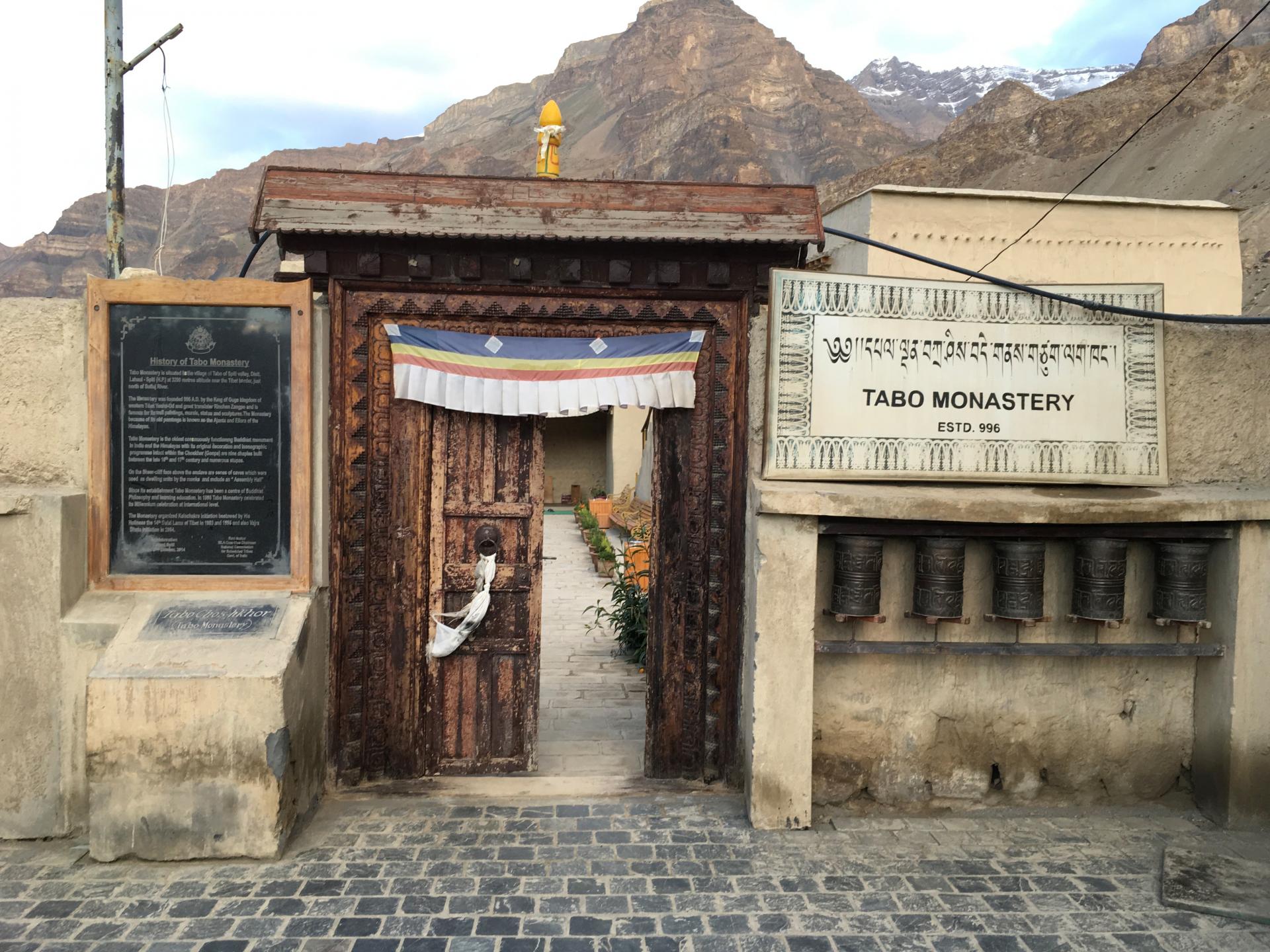Taking Serkong School to new heights
With the arrival of the new Principal, education efforts are being strengthened and modernised
After many years spent teaching the Tibetan language in India and abroad, and holding the role of school principal at Lostava Lamdon School in Tingmosgang (Ladakh, India), Archaya Tenzin Dorjee took on the role of Principal of Serkong School in April 2019. We met with him to find out how his first year as principal went, and to hear his vision for education for the younger generation in Spiti Valley.
Tenzin la, you have had many interesting teaching assignments, what was your motivation to accept the offer to support Serkong School as principal?
Archaya Tenzin Dorjee: I met Professor Geshe Ngawang Samten la, Vice-chancellor of the Central Institute of Higher Tibetan Studies in Varanasi, in 2018 and he asked me to join Serkong School. I thought it was a good opportunity, and that I would be a good fit for Serkong School as I had held the role of principal in Ladakh in 2013 and 2014. However, in that year I already had a commitment to teach the Tibetan language at Bodong Monastery in Nepal, so I couldn’t join the school at that time. When the year came to an end, even though the monastery wanted me to continue teaching there, I moved on to join Serkong School, arriving in April 2019.
How was your start at the school in April 2019?
Archaya Tenzin Dorjee: It was the first time I had visited Tabo. The place seemed to look more or less like Ladakh, but a little less developed and with an erratic phone connection and internet connectivity. As I had worked with foreigners for quite a long time, and frequent use of phones and the internet had become a habit, it took some time for me to adjust to this new workplace.
It was clear when I arrived that the school was ready for some new ideas. The former director, Geshe Sonam Wangdui la, had passed away in 2013. I saw that there was work to be done to take the school to new heights. This can only be achieved by teamwork among the whole of the Serkong School family, but I’m sure we can do it.
What does a day look like in the life of a principal at Serkong School?
Archaya Tenzin Dorjee: As principal of the school, I devote at least 14 hours each day to the school. There is a lot of work to be done to make up for some shortcomings in the previous few years. The teachers and staff are putting in a lot of effort. This year, 2020, because of the pandemic, we couldn’t re-open the school as usual in the month of March, after the winter vacation. Instead, teachers and staff joined the school in May and prepared a home assignment system to make sure that the students cover the lessons that they had lost in the previous months. The students participate in biweekly home assignments. This includes the delivery of assignments door to door, to every home, the process of checking, reviewing and correcting assignments, and delivering the evaluated assignments back to the students two weeks. In a tough remote place like Spiti Valley, where goods and other essential services are considered to be luxury, online teaching is impossible: the majority of the students have no access to the internet or computers or tablets.
What do you perceive as the biggest challenge facing the school?
Archaya Tenzin Dorjee: One of the most challenging tasks is to raise sufficient funds for the school. The school is established as a private institution through the charitable organisation of Tabo Monastery. It doesn’t have enough permanent income. Even though 40 percent of the funds come from the Indian government, this is frequently not released in time, and so many times we cannot provide salaries for our staff on time. Therefore, fundraising is definitely something that we have to continue over the next few years.
What do you hope to achieve at Serkong School?
Archaya Tenzin Dorjee: Education is not only the learning of facts, but also the training of the mind to think. Given space, time and freedom, children generate new knowledge by engaging with the information passed on to them by teachers. Inculcating creativity and initiative is feasible if we treat children as participants in learning, not as receivers of a fixed body of knowledge.
Since I took charge of the school, we have considerably changed the school routines and mode of functioning. Flexibility in the daily timetable is as necessary as rigour in implementing the annual calendar so that the required numbers of teaching days are actually dedicated to teaching. We have tried to make the children’s life in school a happy experience, rather than a source of boredom.
To foster this aspiration, we have initiated several activities, such as
-
a weekly morning assembly presentation by senior class member
-
boarding house-wise news reading, quizzes, and reading of articles in Bhoti, Hindi and English
-
a teacher’s talk during the morning assembly every Friday
-
inter-boarding house competitions on elocution, debating or poem recitation
-
on a weekly basis, two students from grade 3 to grade 10 take part in a drawing or essay-writing competition
-
a handwriting competition in Bhoti, Hindi and English
-
participation in dance, sports and poem recitations in other schools
-
inter-house sports competitions
India has released its new National Education Policy 2020, which aims to fundamentally transform the education provided in the country. We are now carefully reviewing this policy and will include elements from it in the Serkong School curriculum and activities, in order to provide the younger generation from Spiti Valley with an education that enables them to build their future.
Questions by Dr. Annette Kleinbrod, Chairperson of the Board of Serkong Tsenshap International e.V.
23 October 2020



